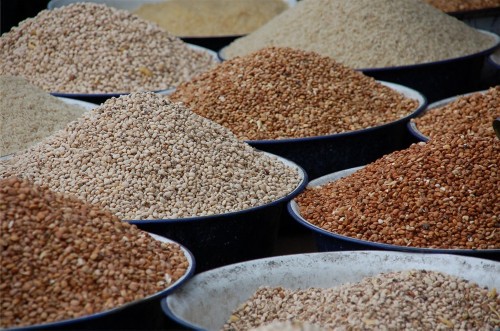According to the introduction from experts, seed trade and investment abroad are two methods for China’s seed industry
going global at present. And seed trade is the main one. In addition, Chinese
seed enterprises mainly use four models to expand overseas market. They are
-
domestic research and development -
domestic seed production - foreign sales
-
domestic research and development - foreign
seed production - foreign sales
-
foreign research and development - foreign
seed production - foreign sales
-
domestic research and development - foreign
seed production - domestic sales

Source: Baidu
1. Domestic research and development-domestic seed production-foreign sales
This is a principal model now. It is also a trade method used by most
enterprises, such as Beijing Doneed Seeds Co., Ltd. and Winall Hi-Tech Seed
Co., Ltd. However, the foreign seed production market hasn’t been developed in
this model.
2. Domestic research and development-foreign seed production-foreign sales
In this model, seed technology and variety advantages created and developed
domestically by China are improved, optimized and promoted under foreign
environment. Besides, the relatively inexpensive foreign resources for seed
production are used. Therefore, China’s seed industry can reduce the costs of
going global.
Currently, some enterprises are making such attempts like setting
up a seed production base overseas. It is becoming a development trend for them
to go global. Some companies have established breeding test stations abroad,
such as Winall Hi-Tech Seed Co., Ltd., Sichuan Guohao Seed Co., Ltd., Hubei
Provincial Seed Group Co., Ltd., Liaoning Dongya Seed Limited Company and
Heilongjiang Nongken Keyuan Seed Limited Company. They cooperate with target
countries to carry out scientific research, tests and demonstration of
breeding.

3. Foreign research and development-foreign seed production-foreign sales
This model is that China’s seed enterprises achieve
their localisation overseas by merging and acquiring local companies
and by directly investing to establish factories.
Yuan Longping High-Tech Agriculture Co., Ltd. (Longping High-tech)
is an example. It set up holding subsidiaries in Indonesia, the Philippines,
etc.
They carry out experiments, demonstration and trial seed production of
hybrid rice and hybrid corn. “Localisation” operations are also
conducted. In addition, Longping High-tech succeeded in planting
demonstration of hybrid rice in Brazil, Indonesia, East Timor, etc.
At present, its market share in Pakistan has increased substantially. Its
markets in countries such as Bengal, the Philippines and Indonesia are further
consolidated. Besides, Longping High-tech established an
international resource collection library for hybrid corn.
An ILROCKFORD breeding station was also founded in the US.
Furthermore, it signed a ten-year agreement with Illinois Foundation Seeds Inc.
and invested USD10 million to introduce germplasm resources.
Projects such as Canadian breeding station and South American breeding station
are under preparing for construction.
Chongqing Zhongyi Seed Co., Ltd. set up four companies in Laos,
Bangladesh, Myanmar and Vietnam. There are some companies establishing one
company overseas, including Beijing Kings Nower Seed S&T Co.,
Ltd. in the US, Shandong Guanfeng Seed Science and Technology
Co., Ltd. in Brazil, Henan Jingyan Yinhai Seed Co., Ltd. in Tajikistan,
Sichuan Southwest Kelian Seed Industry Co., Ltd. in India,
and Guangxi Wanchuan Seed Co., Ltd.,
Sichuan Ludan Seed Co., Ltd. and Sichuan Xike Seed Co.,
Ltd. in Vietnam.
4. Domestic research and development-foreign seed production-domestic sales
This model is just a trend, primarily because target countries restrict sales
of Chinese seeds in their markets due to various reasons. Meanwhile, the cost
of domestic seed production is high, but it can be reduced by using this model.
As for seed trade, China’s total volume of seed imports and exports increased
by 4.59 times in 14 years during 2000-2013. The average annual growth rate was
13.54%. The total exports increased from USD56.18 million to USD278.05 million.
The number of seed export destination rises rapidly.
In addition to traditional
ones in Southeast Asia, China’s seed enterprises are actively expanding some
emerging markets such as Africa, South America and Central Asia as well as
developed markets such as Europe and America.
This article comes from Seed China News 1607, CCM

About CCM:
CCM is the
leading market intelligence provider for China’s agriculture, chemicals, food
& ingredients and life science markets. Founded in 2001, CCM offers a
range of data and content solutions, from price and trade data to industry
newsletters and customized market research reports. Our clients include Monsanto,
DuPont, Shell, Bayer, and Syngenta. CCM is a brand of Kcomber Inc.
For more information about CCM, please visit www.cnchemicals.com or get in touch with us
directly by emailing econtact@cnchemicals.com or calling
+86-20-37616606.
Tag: seed